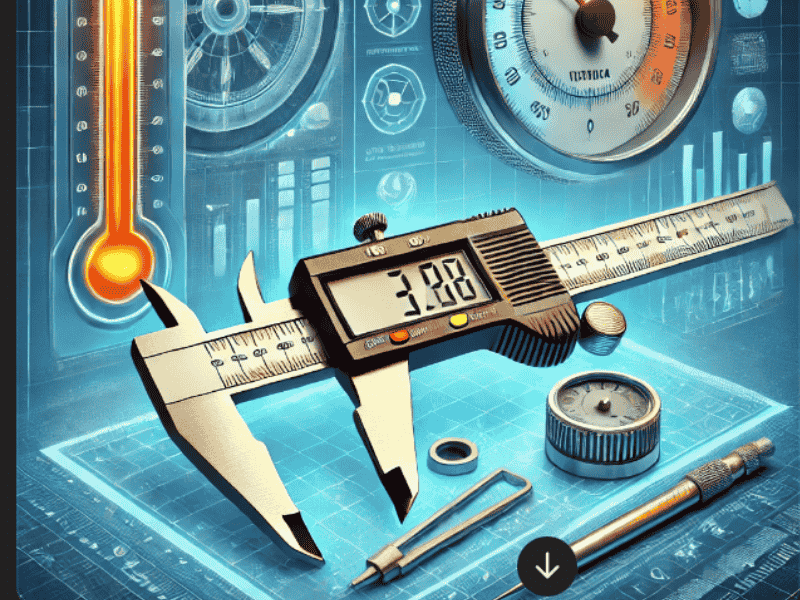Address
#10, K.E.B Road, Newpet
Anekal, Bangalore -562106
Work Hours
Monday to Saturday: 9AM - 6PM

Hey there! Has there ever been a time that you bake cookies directly without using measuring cups? Perhaps you put more sugar than flour or vice versa, and definitely the final product was an awful disaster. Calibration you see is a bit like that – it all needs to do with getting measurement just right. What would happen if for instance a factory did not get the machines right in terms of their calibration? It could make products that aren’t very good, similar to how these cookies turned out for me!
Then, what does the term “calibration” imply ? In its simplest form it is the act of verifying and correcting tools to ensure they are correct. Think about it: if you weighed your backpack on the scale and the scale gave a wrong figure, then you would just think that you have got a lighter backpack than it really is. Not good, right?
Controlling the quality, calibration is always a significant type. It serves to guarantee that products developed are of a high quality. Here are some places where calibration really matters:
Manufacturing: For instance, a factory producing car parts. If those parts aren’t made right, then well-they don’t fit together, and that’s a difficult situation indeed!
Pharmaceuticals: Medications must be taken in a specific quantity or at a certain particular time. If they are not it could be dangerous.
Laboratories: A scientist needs measurements for his/her experiment and to obtain these measurements, they have to use appropriate instruments. Imagine working with those tools and your results are only as good as the tools you were using – or perhaps completely wrong!
If not well calibrated, what one is using could be wrong, and this can amount to having wrong products or wrong information, which is very dangerous.
Now let’s turn to how hot or cold the environment is. It sounds a bit ridiculous when said, but it actually can do a lot when it comes to our instruments for measuring! For instance, have you ever heard the fact that when a metal body is heated, the entire volume of the metal increases? This is a fact that means that if you use this to measure anything while the temperature is changing, you will not get a perfect result.
This change in size because of the temperature is referred to as thermal contraction while the opposite is referred to as thermal expansion. That’s why it’s super important to keep a stable temperature during the calibration stage in case you’ll have to repeat all the procedure again. We can forget getting the right measurements if they are done away from the standard temperature.
In Mechanical Engineering the standard temperature for calibration and measurement is 20 Deg Cels. Calibrations made at this standard temperature anywhere in the world are comparable. This is the basic requirement where all Mechanical calibrations are carried out. Similarly for electrical engineering the reference temperature is different and so is with pressure etc., One need to be careful at what temperature the calibrations are done.
Let’s break down a few things that can influence how temperature affects calibration:
Temperature change has a different effect on different instruments. Some are very sensitive, meaning that if there is a slight change in temperature, then the readings will be off. Oh, yes, it reminds me when you attempt to measure out only the appropriate quantity of ingredients: it has to be exact.
Environmental influences such as the temperature of the room can affect the results being obtained. It is like trying to calibrate in a room that does not even have air conditioning. If conditions get too hot, you will often find your results scattered in every which way!
Depending on what kind of measuring method has been used, they all have sensitivity to temperature. Some will have very stringent temperature regulation requirements while others are a little more forgiving.
Well, temperature for how much can and does it affect our calibration? Here are some simple tips:
Use Climate-Controlled Environments: We also know that we store our food items in a fridge, similarly we should store the calibration tools in a place where the temperature is most likely to be constant.
Monitor Regularly: Pay attention to the variations in temperature and humidity to make sure they are optimum for such calibration. So think about it like this – it’s like constantly checking your oven while baking a cake!
Choose the Right Equipment: Employ equipment that would function well when used under specific conditions of temperature. This eliminates complications in the future on civil-military relations.
Let’s take a look at some real-life examples that show why temperature matters in calibration:
Calibration Failures: A factory had some parts which were too large and they traced the problem to a calibration room that was hot. This in one way caused wastage of materials and a lot of fume!!
Successful Calibration Stories: The advantage; when a pharmaceutical firm ensured that the room temperature remained stable during the calibration process, the medications that the firm developed remained dosed appropriately, thus helping to keep the patients away from the sickness lines.
Wow these stories really show just how vital the manipulation of temperature is!
For all intents and purposes, it is important to note that calibration is all that matters when it comes measuring and temperature influences it. In other words, we need to pay special attention to temperature and work more carefully in order not to make a lot of errors.
We want to hear from you! Have you ever found yourself being in a position that the temperatures influenced your measurement results? Please post your commentary in the comments section below this article. And if you need services of a calibration company or help of an expert specialized in this field, you can easily turn to the experts of an arsenal of services. We’re here to help!